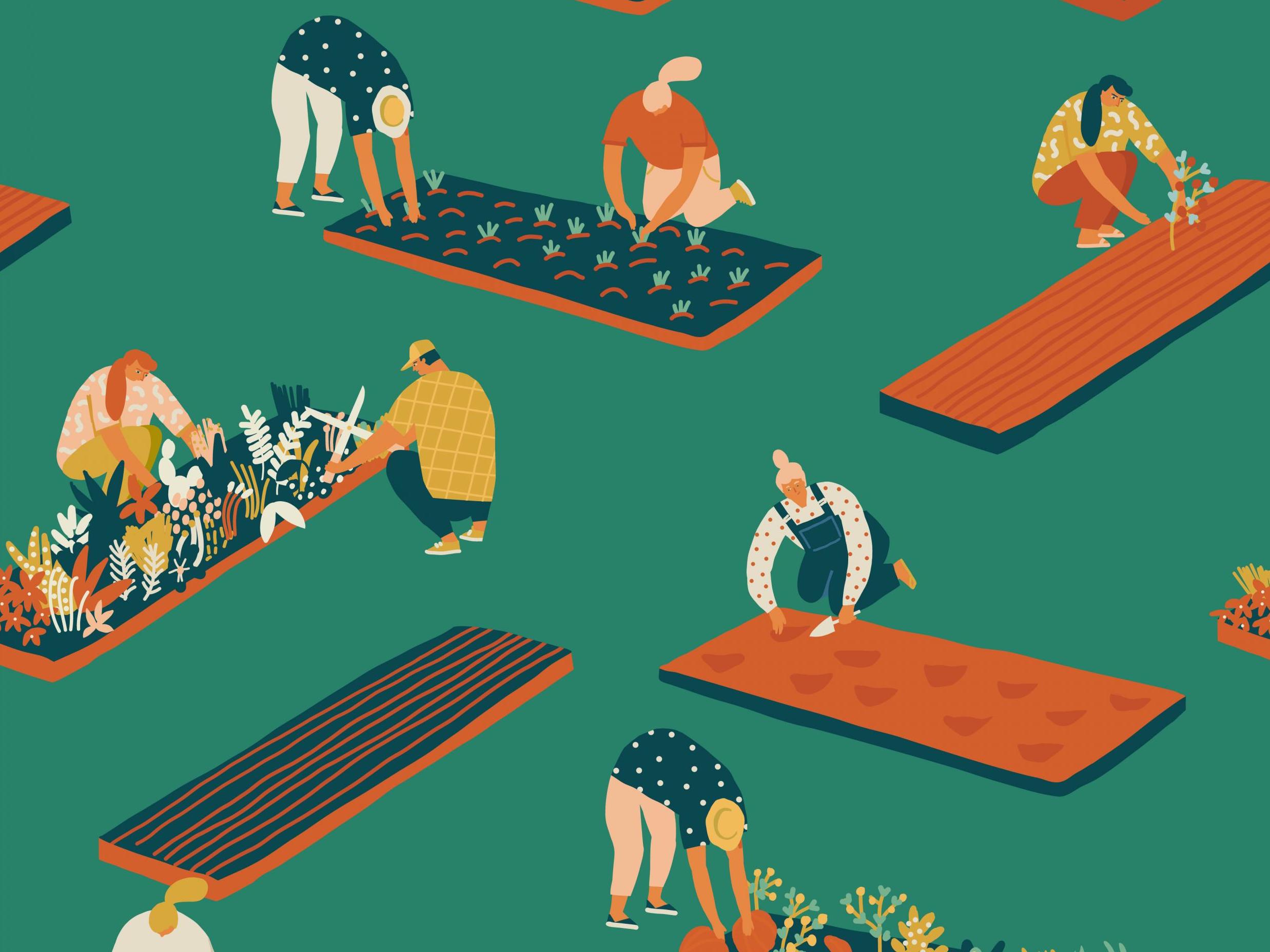The Independent's journalism is supported by our readers. When you purchase through links on our site, we may earn commission.
At a time of unprecedented suffering, tending to nature gives us reason to hope
As the UK death toll increases apace and millions of people are out of work, Alice Vincent looks at how the arrival of spring gives us reason to look to the future

Your support helps us to tell the story
From reproductive rights to climate change to Big Tech, The Independent is on the ground when the story is developing. Whether it's investigating the financials of Elon Musk's pro-Trump PAC or producing our latest documentary, 'The A Word', which shines a light on the American women fighting for reproductive rights, we know how important it is to parse out the facts from the messaging.
At such a critical moment in US history, we need reporters on the ground. Your donation allows us to keep sending journalists to speak to both sides of the story.
The Independent is trusted by Americans across the entire political spectrum. And unlike many other quality news outlets, we choose not to lock Americans out of our reporting and analysis with paywalls. We believe quality journalism should be available to everyone, paid for by those who can afford it.
Your support makes all the difference.This time last year, admiring the wisteria in Battersea Park, I was talking with a friend about the challenge of encouraging the swathe of new gardeners, who had fallen for houseplants, to extend their growing outdoors.
The past decade has seen an unlikely uptick in indoor gardening - millennials are responsible, the Economist found in 2018, for a third of houseplant sales in the US. I’ve reported on this phenomenon as it’s happened. I’m also an urban, millennial gardener, who happens to have a few houseplants. And yet I struggled to see a way of ushering people on to their window ledges and community green spaces, to garden beyond the remits of tropical house plants.
Little did any of us realise it would take a global pandemic.
One of the happier side-effects of Covid-19, and the nationwide lockdown, has been a renewed interest in growing things. As the lockdown loomed, garden centres sold out of seeds and compost as people thought they might grow their own way out of food shortages.
Last week, the tentative re-opening of garden centres heralded a slow return to a kind of normality. The Chelsea Flower Show may have gone online, but nature has carried on regardless. The blossom and daffodils joined us on our daily walks, and, increasingly at home, we went to ground, keen to engage with the outdoor world with our new, shrunken horizons.
For those who gardened a lot already, lockdown held a secret blessing: a sudden dose of time at home to sow seeds and tend to plants that the commute and social lives normally took us away from.
But it was even more invigorating to witness those who had never gardened before making the most of whatever outdoor space they had: sowing seeds in egg cups and leaving them on windowsills, clearing out scrubby shared back gardens, placing orders with nurseries and experimenting with organic fertilisers.
As a self-taught gardener, it’s been a genuine pleasure to see other city-dwellers get stuck in. Millennials are often mocked for their houseplant affinity; people are keen to snub it as a sign of our general incapability, suggesting that we nurture plants because we’ve otherwise failed at, say, buying a house or raising children.
But I’ve always argued that we’re hungry for a connection with the living world that we’ve never been allowed to nurture. The Nineties was an era of Windows 95 and decking blocking out grassy back gardens; we became the first generation to grow up with the internet and the last to have a childhood without it. A tidal wave of technological advance saw us become screen-adept and short on patience. No wonder we found delight and novelty in the slow gratification of watching a new leaf unfurl.
We may stay in lockdown but in sowing a seed we know that there’s a chance of literally raising hope on our windowsill...
And in lockdown, when time is slick and shapeshifting and anxieties are keenly felt, the need to slow down and engage with something small, simple and promising - truly, the essence of gardening - has never been greater.
It may seem daft, if not futile, to do something as effortful and seemingly insignificant as sowing seeds at a time of unprecedented illness and death, but to grow is to actively agree to hope. A handful of dirt, a tiny seed, a sprinkle of water and the light of day can collide to offer that most inspiring of everyday sights: a green shoot.
Those green shoots get taller, broader, more colourful. And with them the rest of the world changes. The trees come into leaf, the grass becomes soft and hazy, the days lengthen.
We may stay in lockdown and we may not know what the broader future holds. But in sowing a seed we know that there’s a chance of literally raising hope on our windowsill.
At a time when looking forward to things can feel a distant concept, that promise of growth becomes something powerful to hold onto.
Seeds from Scratch by Alice Vincent, available now in audiobook (Hodder & Stoughton). Purchase the audiobook or listen to an excerpt.
Join our commenting forum
Join thought-provoking conversations, follow other Independent readers and see their replies
Comments